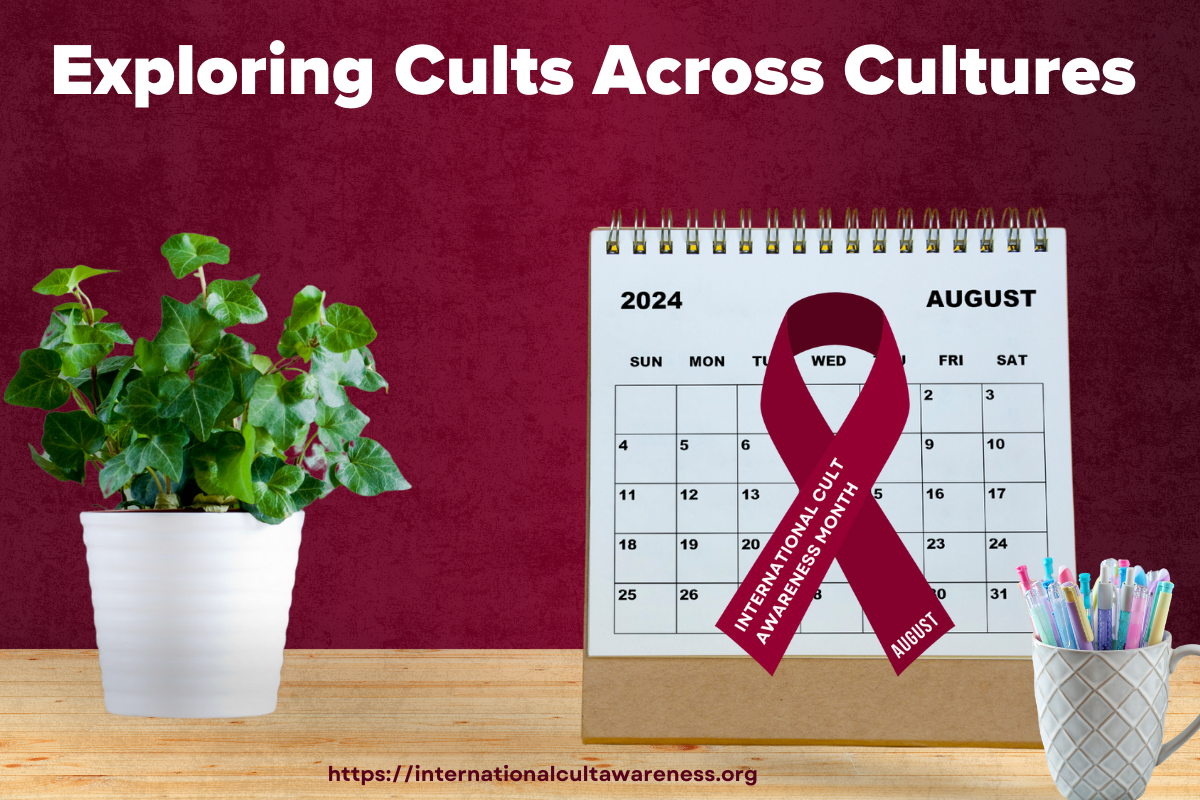On Exploring Cults Across Cultures: In a recent and enlightening webinar titled “Cults Across Cultures,” International Cult Awareness Month (ICAM) hosted a diverse panel to explore cult myths and misconceptions. Cults manifest differently across various cultures, and understanding these nuances is crucial to raising awareness and fostering effective prevention. Here’s a detailed event rundown focusing on participants’ insights and discussions.
Introduction to Exploring Cults Across Cultures
The session started with Dr. Tabitha Chapman, PhD-c, introducing the topic and outlining the essential objectives of Cult Awareness Month. Dr. Chapman emphasized, “One of the myths that I see frequently, especially right after a documentary comes out, is people from certain cultures don’t fall into the trap of cults.” The panel aims to ensure vigilance irrespective of cultural background by dismantling these myths.
Personal Journeys Through Cults
Nikki G’s Journey
Nikki G. shared her poignant journey in exploring cults across cultures, which began in a narcissistic family system she dubbed her “first cult.” Raised in a religious Black family, Nikki’s experiences spanned multiple cults, culminating in a deeply personal and professional commitment to cult awareness and trauma recovery. She poignantly noted, “Many people label cult characteristics and cult markers in their communities as just church hurt, but it’s so much more.”
Rachel Reign’s Experience
Rachel Reign recounted her harrowing experience as a member of the Universal Church of the Kingdom of God from age 13. Highlighting the cult’s strategic recruitment that targeted ethnic areas, Rachel shared, “They exploit the culture of that area to lure people in because they know that if they go to black and brown areas, they’re gonna find devout Christians.”
Ryan Anthony Hernandez’s Story
Ryan Anthony Hernandez shed light on the racial and cultural dynamics within his cult experience as the group explored cults across cultures. As a Hispanic in a predominantly Filipino cult, Ryan observed, “Cults are very strategic in their steps to break a person down or to separate them from their family and ultimately from their culture.”
Cultural Influence on Cult Recruitment
A significant theme emerged around the cultural tactics cults employ for recruitment:
- Cults in ethnic areas, as Rachel Reign said, “exploit real issues” to draw people in.
- Nikki G. discussed how historical ties to religion within the Black community perpetuate a pressure to remain in abusive religious settings due to generational indoctrination.
- Ryan and Rachel emphasized the need for educational and systemic interventions to recognize coercive control and radicalization beyond the narrow confines of traditional perceptions.
The Need for Safeguarding and Legal Amendments
Rachel posited that legislative changes could bolster systemic protection:
- Expanding coercive control laws to include non-domestic settings.
- Criminalizing conversion therapy within places of worship. She underlined, “With cults, I think they all have coercive control in common, you know, it’s the common denominator.”
Strategies for Prevention and Protection
Each speaker stressed the importance of education and boundaries. Ryan Anthony Hernandez reflected on the absence of terms like gaslighting and coercion in the Hispanic community, highlighting the gaps in understanding and language. Rachel and Nikki advocated for systemic changes and interventions at the educational level, training for healthcare professionals, and promoting boundaries and awareness in familial settings.
Final Thoughts
The session wrapped up with a collective emphasis on the need for nuanced resource allocation and legislative advocacy to protect vulnerable individuals across different communities. Nikki underscored, “If we want to see on a human level, people avoid cults, exit cults, heal from cults, we’re going to have to start to connect with the different cultural cult experiences on the planet.”
Resources for Support
If you or someone you know is struggling with issues related to cults or coercive control, several resources are available:
- RAINN: The Rape, Abuse & Incest National Network.
- 988 Suicide & Crisis Lifeline: For immediate emotional support, in the US, dial 988.
- The Domestic Violence Hotline: Provides support and resources for those experiencing domestic abuse.
- Freedom Train Project: Focuses on providing support to those affected by cults and coercive control.
- Viewers recommended Daniel Shaw’s book Traumatic Narcissism: Relational Systems of Subjugation (affiliate link to Amazon)
Conclusion
Cults thrive on secrecy and manipulation, but creating awareness across cultures can dismantle these harmful structures. This insightful webinar is a potent reminder that vigilance, education, and strong support systems are vital in safeguarding our communities from the perils of coercive control and cultic influence.
For more resources and to engage in future discussions, please visit ICAM’s official page. Your story and voice matter in the global cult awareness and recovery conversation.
FOLLOW THE SPEAKERS
Rachael Reign
https://www.instagram.com/survivinguniversaluk/
NikkiG
https://www.nikkigspeaks.com
Ryan Hernandez
https://truththathealspodcast.wordpress.com/
Dr. Tabitha Chapman, PhD-C
https://instagram.com/tabbymarie
THE FREEDOM TRAIN PROJECT INCORPORATED https://thefreedomtrainproject.org
ICAM MERCH LINK
https://www.bonfire.com/store/the-freedom-train-project-incorporated/
ICAM WEBSITE
https://internationalcultawareness.org


Leave a Reply